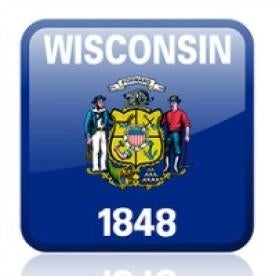The words that may best describe Wisconsin law regarding the enforceability of post-employment restrictive covenants (such as non-competes and non-disclosure agreements) might very well be “evolving” or “transforming.” This is true of the last six years and especially the last few months. As a result, Wisconsin employers should either review now or plan/budget for the review and revision of their standard agreements in the near future.
For many years, Wisconsin’s law in this area was fairly static. But then:
-
-
In 2009, in Star Direct, Inc. v. Dal Pra, the Wisconsin Supreme Court ruled that even if one restrictive covenant in an agreement is unenforceable, any other restrictive covenants within the same agreement are not automatically unenforceable, so long as they can be read and enforced independently of the unenforceable provision. Previously, Wisconsin courts typically concluded that if one covenant was unenforceable, the entire agreement was unenforceable.
-
Additionally, prior to Star Direct, some courts had suggested that an employer may not have a protectable interest in restricting its employees from soliciting former customers or prospective customers. Star Directfound otherwise, stating, “[w]hile an employer’s prospects of rekindling customer relationships fades considerably over 15 years, we believe under the facts of this case that an employer is entitled to an opportunity to recoup the considerable investment of resources it made in developing and fostering customer relationships and business opportunities that were active as recently as one year prior to the employee’s termination.”
-
On March 5, 2015, Senate Bill 69 was introduced in the Wisconsin Senate. A link to the history and text of the Bill can be found here. If passed into law, Senate Bill 69 would repeal Wis. Stat. § 103.465 and replace it with one of the most pro-enforcement restrictive covenant laws in the nation. Among numerous other changes, with regard to covenants entered into after the effective date of the Bill, the Bill (1) specifies that continued at-will employment, by itself, would provide sufficient consideration to support a restrictive covenant; and (2) allows the courts to edit (or “blue-pencil”) an otherwise overly-broad covenant and then enforce the covenant as revised, as opposed to automatically striking down an overly-broad covenant. The Bill has been referred to committee.
-
On April 30, 2015, in Runzheimer Int’l Ltd. v. Friedlen, the Wisconsin Supreme Court held that “an employer's forbearance in exercising its right to terminate an at-will employee constitutes lawful consideration for signing a restrictive covenant.” In other words, if the employer can prove that an employee was required to sign the covenant or would have been fired, the covenant is supported by consideration. Previously, the Wisconsin courts had not affirmatively ruled on this issue. However, many employers had hoped that the Runzheimer court would have answered the even more basic question of whether continued at-will employment, by itself, is sufficient consideration to support a restrictive covenant. Senate Bill 69 answers this question in the affirmative, and if it becomes law, would likely render the Runzheimer decision insignificant.
-
We will continue to monitor the progress of Senate Bill 69. Even if the Bill does not become law, employers should review their restrictive covenants to both assess their scope and maximize the likelihood of enforcement in light of the changes to Wisconsin law. If revision is necessary with regard to existing employees, Runzheimer has provided guidance as to how to support revised covenants with sufficient consideration.





 i
i


